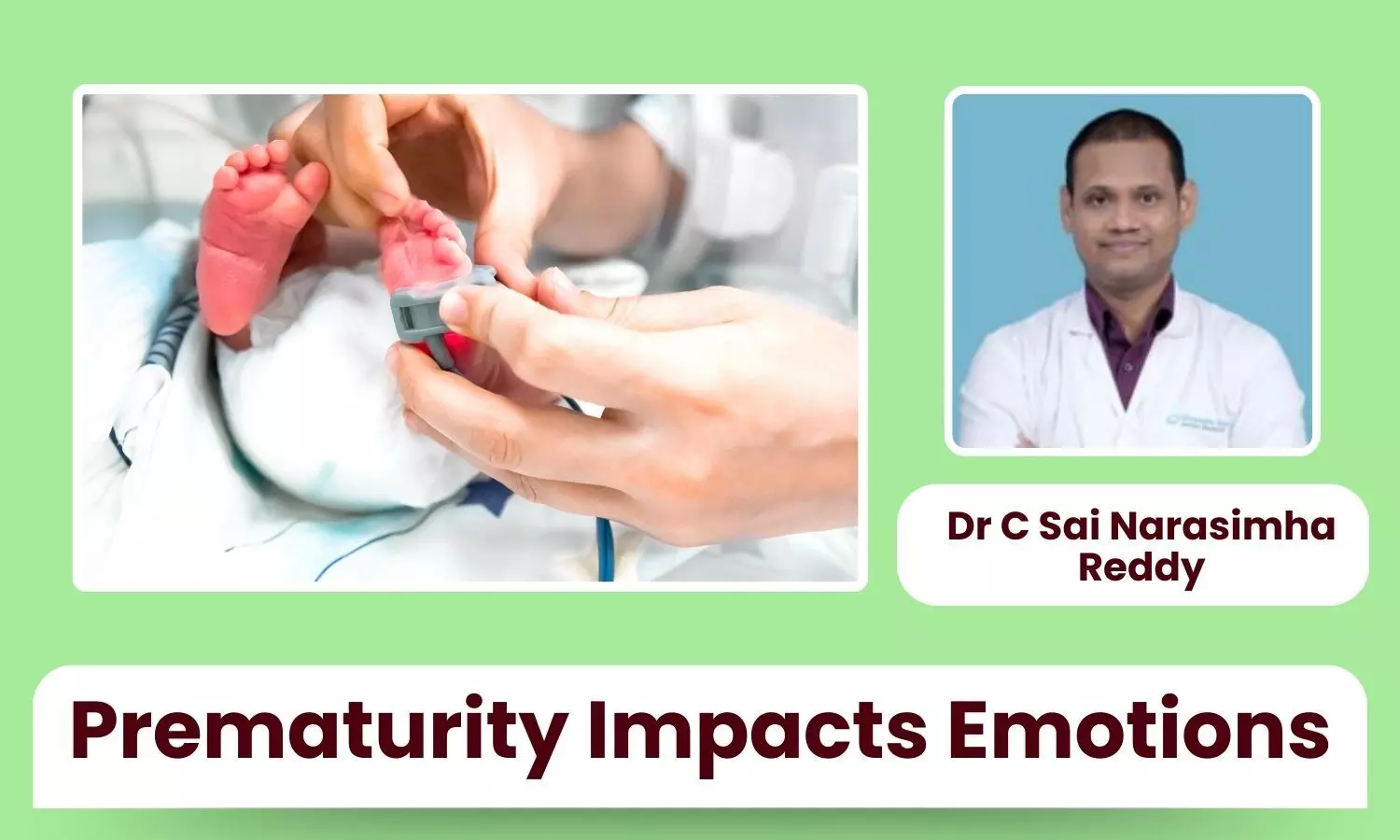Emotional Health in the NICU: Supporting Parents Through the Silent Trauma of Prematurity - Dr C Sai Narasimha Reddy

Most parents imagine their baby’s first days wrapped in soft blankets, surrounded by family, and filled with quiet joy. But when a baby arrives early, that picture changes overnight. The first cradle becomes an incubator, the lullaby turns into the steady beep of machines, and the parents’ first touch comes through a maze of tubes and wires.
For parents of premature babies, the NICU brings both hope and heartache. It’s a place where relief and fear live side by side — relief that their baby is alive, and fear of what each day might bring.
The Emotional Whirlwind No One Talks About
When families walk into the NICU for the first time, most are still reeling from the sudden delivery. Mothers who expected a few more months of pregnancy are instead recovering from surgery or trauma while trying to process what has happened.
Fathers, meanwhile, are thrust into the role of protector and decision-maker before they’ve even had a chance to feel the joy of becoming a parent.
Many parents describe these early days as a blur. They watch their baby’s fragile breaths, unwilling to leave even for a meal. Outside, life continues — but inside that room, everything stands still. Over time, this emotional strain can lead to postpartum depression, anxiety, or even symptoms that resemble post-traumatic stress.
What makes this harder is that parents rarely talk about it. Everyone around them is focused on the baby’s progress — weight gain, breathing, feeding — while the parents’ emotional wellbeing fades quietly into the background. Yet, the pain they carry is real, and it deserves attention.
Mothers: Between Guilt and Grief
For mothers, the journey through the NICU often begins with guilt. “Did I do something wrong?” is a question I hear more often than most realize. Many feel they failed their baby somehow — that their bodies couldn’t provide the safe space their child needed. These feelings can run deep and linger long after discharge.
Even simple things, like watching other mothers nurse or hold their babies freely, can reopen that wound. The natural process of bonding gets disrupted. When you’re told not to touch your own child without permission, or to wear a gown and gloves first, it’s hard not to feel a certain distance — even when the love is fierce and unconditional.
Fathers: The Quiet Sufferers
Fathers carry their own kind of burden. Mothers are often told it’s okay to cry, but fathers are expected to hold it together. Many seem calm on the surface, yet later confess that every alarm in the NICU made their heart stop. They hide their fear, believing they must be the steady one.
That kind of silence takes a quiet toll. Many fathers struggle to feel close to their baby at first, especially when they feel there’s nothing they can do. In reality, both parents need the same comfort — to know their feelings are real, their fears are understood, and asking for help is perfectly okay.
Finding Connection Amid Machines and Monitors
Even in the sterile environment of a NICU, small moments of connection can mean everything. A gentle touch through the incubator wall, reading softly to the baby, or simply sitting beside them can help restore that fragile bond.
Kangaroo care — holding a baby skin-to-skin — has well-known benefits for both parent and child. It helps stabilise the baby’s breathing and temperature while easing parental anxiety. Many fathers say it’s the first time they truly feel connected. Such simple contact often marks the beginning of emotional healing.
The Doctor’s Perspective
As neonatologists, we are trained to watch oxygen levels, blood gases, and vital signs. But over time, you learn that a parent’s emotional state is just as critical as any medical parameter. A calm, supported parent can nurture a baby’s recovery in ways that machines cannot.
When we take a few extra minutes to explain what’s happening, to reassure parents that the baby is responding, or simply to acknowledge how hard this is — it changes everything. The atmosphere in the NICU softens. Parents feel seen, and healing begins on both sides of the incubator glass.
Healing After Discharge
Many families assume that once the baby goes home, the hardest part is over. But for some, the anxiety lingers — fear of infection, sleepless nights, overprotectiveness, or guilt that resurfaces in unexpected ways. Emotional recovery, like physical recovery, takes time.
Follow-up visits should include gentle conversations about how parents are coping — not just how the baby is feeding or growing. Counselling, support groups, or even informal talks with other NICU families can make a world of difference.
Prematurity changes the way parents see the world. It teaches fragility, but also resilience. The NICU, for all its fear and fatigue, is also a place where some of the deepest forms of love are born.
Disclaimer: The views expressed in this article are of the author and not of Health Dialogues. The Editorial/Content team of Health Dialogues has not contributed to the writing/editing/packaging of this article.


